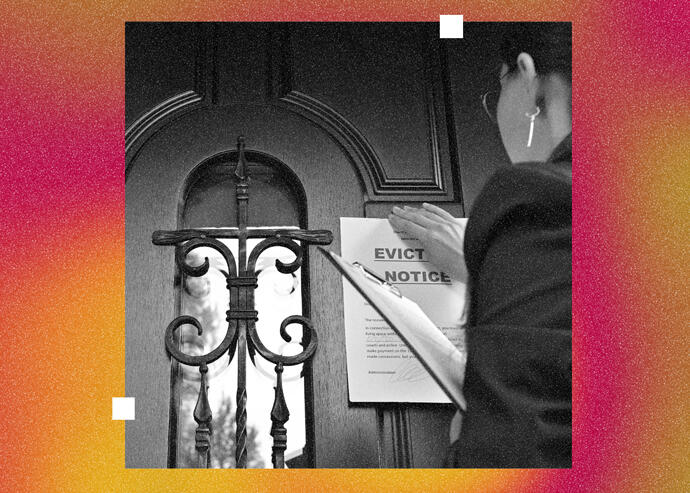
With evictions on the way, New York City Marshals are ready to begin their own post-pandemic economic recovery. (iStock)
The pandemic had a detrimental impact on business across numerous occupations. City marshals were no exception, with state and federal eviction bans preventing the civil servants from enforcing actions against tenants.
New York City Marshals are preparing to get back to work after a Supreme Court ruling last week struck down a key provision in New York’s eviction moratorium allowing tenants to self-attest economic hardship due to the pandemic.
Thousands of eviction cases stayed by hardship declarations can now move forward as a result of the ruling, though a backlog of housing court cases means most tenants likely won’t face immediate risk of eviction. In the two days after the Supreme Court ruling, 184 new eviction cases were filed in the city, according to City Limits.
City marshals, appointed by the mayor to five-year terms, are tasked with enforcing civil court orders, including executing evictions, collecting money judgments and seizing property. They’ve lost out on millions of dollars in net income as a result of the eviction moratorium.
Collectively, the city’s 35 marshals earned a net income of $14 million in 2019, City Limits reported. Last year, however, they netted less than $4 million.
Tenant advocates are concerned marshals may work around the clock to recoup their losses once eviction protections expire. A spokesman for the Marshals Association says the group will follow the orders of the courts, as directed.
At least 40 tenants have been evicted this year despite the state moratorium, mostly of which were ordered to leave prior to the pandemic.
Many tenants will qualify for the state’s emergency rental assistance program, despite the slow trickle of relief funds reaching the pockets of tenants and landlords alike. Others may be protected by the national moratorium, which covers areas of high-Covid density, including all of New York City.
New York state’s eviction moratorium is set to expire at the end of August.
[City Limits] — Holden Walter-Warner


